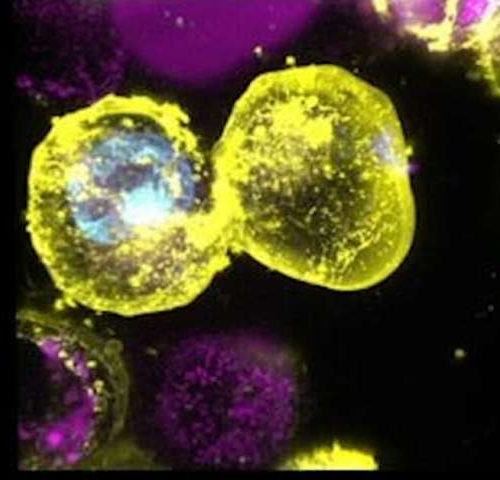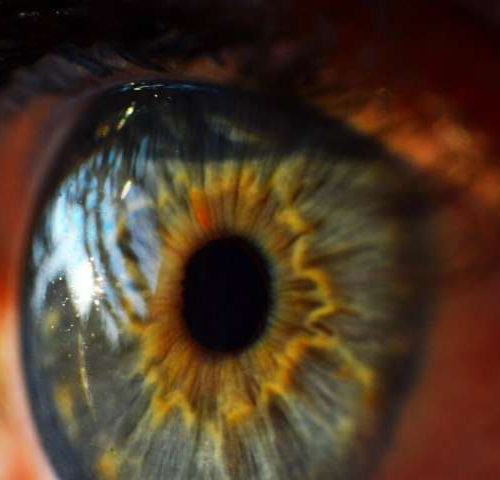by Institute of Cancer Research Cancers are often heavily reliant on breaking down fats for their growth and spread, and could be treated by a highly innovative combination of new drugs and dietary changes, a major new study concludes. The landmark research used a surgical ‘iKnife’ to analyze vaporized cancer tissue—and identified a metabolic weakness...
Tag: <span>diseases</span>
New light shone on inflammatory cell death regulator
by Walter and Eliza Hall Institute alter and Eliza Hall Institute researchers have used lattice light sheet microscopy to visualise cells dying by necroptosis, a form of inflammatory cell death. In this image, purple marks cells with undisrupted cell membranes; yellow shows disrupted cell membranes; blue shows that the cell membrane has broken and marks...
Seeing corneal degeneration in a new light
by UT Southwestern Medical Center The molecular changes that lead to Fuchs’ endothelial corneal dystrophy (FECD) occur decades before the disease causes blurry vision and other noticeable symptoms in patients, new research by UT Southwestern scientists shows. This insight into this earliest stage of FECD may eventually lead to new ways of screening for and...
Newly Synthesized Fungal Compound Can Switch on a Self-destruct Button for Cancer
Leading organic chemists synthesize fungal molecule capable of reactivating the self-destruct gene in aggressive cancer cells. Cancers cells use a special technique to propagate; they delete their “programmed death” gene through mutation, “forget” to die when their lifetime is over and continue to grow instead. A research team from Tokyo University of Science has developed...
Link between liver and heart disease could lead to new therapeutics
A new study that looks closely at the cardiac health of flies provides new evidence that liver dysfunction may lead to deterioration of the heart. The research fills in gaps in how scientists understand the links between heart health and other tissues and could inform the development of new therapies in human medicine, said Hua...
Scientists rescue mini retinas from eye disease via new gene therapy approach
Scientists have developed a new gene therapy approach that offers tremendous promise for one day treating an eye disease that leads to blindness and affects thousands of people across the globe. Researchers from Trinity College Dublin and University College London (UCL) teamed up to pool their expertise in genetics, virology and ophthalmology, beginning the journey...
Noise disturbs the brain’s compass
by German Center for Neurodegenerative Diseases Our sense of direction tends to decline with age. In the scientific journal Nature Communications, researchers from the German Center for Neurodegenerative Diseases (DZNE) and experts from the U.S. report on new insights into the causes of this phenomenon. According to their findings, the main source of errors in...
Antihistamines and similar drugs could slow down Huntington’s disease
Controlling dopamine signalling by targeting the histamine receptor has been shown to be a promising strategy for preventing the progression of Huntington’s disease in mice Scientists have described a potential new therapeutic strategy for slowing down early-stage Huntington’s disease in a new study published today in eLife. The research in mice indicates that targeting the...
COVID-19’s deadliness for men is revealing why researchers should have been studying immune system sex differences years ago
Reports show that the mortality rate among men with COVID-19 is higher than women. Marco Mantovani/Getty Images Email Twitter3 Facebook299 LinkedIn Print When it comes to surviving critical cases of COVID-19, it appears that men draw the short straw. Initial reports from China revealed the early evidence of increased male mortality associated with COVID. According...
Kidneys deteriorate with age, regardless of health
An international study that has been carried out on nearly 3000 people in Norway, Germany, and Iceland, shows that our kidney function deteriorates with age, even if we do not have any other diseases. The results from the study have recently been published in the reputable journal for kidney diseases, Journal of the American Society...







